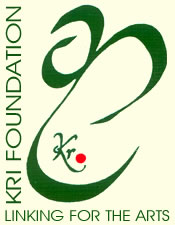 |
|||

 Vikas Harish is a Charles Wallace, INLAKS (first recipient for Museology) and the French Government Fellowship scholar.
Vikas Harish is a Charles Wallace, INLAKS (first recipient for Museology) and the French Government Fellowship scholar.
Having finished an MA Museology as a gold medallist at the National Museum Institute, New Delhi, he pursued courses in Material Culture Interpretation and Communication at the Department of Museum Studies, University of Leicester and conducted research in potential of museums to promote material culture awareness at premier museums in India and in the UK, France, Italy, Spain and the Netherlands. He returned to design and commence the museology course at the Deccan College Post-graduate and Research Institute in Pune.
Following this he practised museum education in England, and created Nature Interpretation Centres, Heritage Museums in India apart from curating art and heritage exhibitions, including 'The Bronze Treasures of the National Museum'. He has worked with various NGOs for their non formal education and communication projects, eminently as the consultant for planning for environment education project of the WWF-India and India Canada Environment Facility. He was to be the Museologist and Co-ordinator for the Picasso: Métamorphoses 1900-1972, a premier exhibition of the grand master brought to India by the Embassy of France in India and the Department of Culture, Government of India, which was followed by coordinating cultural manifestations of the Delegation General of Alliance Françaises in India.
He was also the museologist curator for the exhibition ‘CC: Crossing Currents: video art & cultural identities’, Indo-Dutch Video Art Exhibition at the Lalit Kala Galleries, New Delhi.
He was awarded the French government scholarship to undertake research at the Centre Georges Pompidou and the University of Avignon in the pluridisciplinarity of the arts. He currently undertakes research in the interpretative relations that exist in art forms and its communication between India and France.
He has been writing and also lecturing on Indian Arts Aesthetics, Material Culture Interpretation and Arts Communication in India at the National Museum institute, Delhi Institute of Heritage Research and Management, School of (media) Convergence etc. in India, Musée Guimet and Musée du Quai Branly in France and at the PGIRM, University of Kelaniya in Sri Lanka. He has also been a guest lecturer at prestigious other forums and seminar over the years.
He is now the ‘Scientific Counsellor’ at the Musée du Quai Branly to work on a premiere exhibition on Indigenous India, tribal and folk arts to be presented in two years in Paris.
He represents India on the Executive Council of the Commonwealth Association Museums.
...............................................................................................................................................................................................